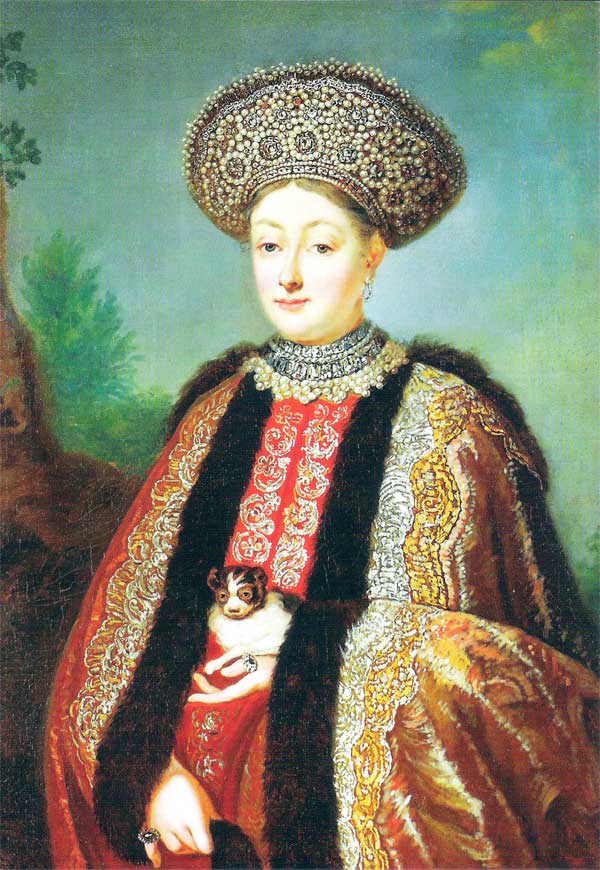Fyodor Alekseyevich on:
[Wikipedia]
[Google]
[Amazon]
Fyodor III Alekséyevich (in Russian: ''Фёдор III Алексеевич'') or Feodor III Alekséyevich (9 June 1661 – 7 May 1682) was the Tsar of Russia between 1676 and 1682. While disabled and paralyzed from birth, he managed to pass reforms on improving meritocracy within the civil and military state administration as well as founding the
 Seven months later, on 24 February 1682 Fyodor married a second time
Seven months later, on 24 February 1682 Fyodor married a second time 
Romanovs. The second film. Feodor III, Sophia Alekseyevna; Ivan V
– Historical reconstruction "The Romanovs". StarMedia. Babich-Design(Russia, 2013) {{DEFAULTSORT:Feodor 03 Of Russia 1661 births 1682 deaths 17th-century Russian monarchs Royalty from Moscow House of Romanov Russian tsars Candidates for the Polish elective throne Modern child rulers Eastern Orthodox monarchs Russian tsareviches Children of Alexis of Russia
Slavic Greek Latin Academy
The Slavic Greek Latin Academy (russian: Славяно-греко-латинская академия) was the first higher education establishment in Moscow.
History
Beginning
The academy's establishment may be viewed as a result of the incorpo ...
.
Life
Born in Moscow, Fyodor, as the eldest surviving son of Tsar Alexis and Maria Miloslavskaya, succeeded his father on the throne in 1676 at the age of fifteen. He had a fine intellect and a noble disposition; he had received an excellent education at the hands ofSimeon Polotsky
Symeon (Simeon) of Polotsk or Symeon Polotsky (russian: Симео́н По́лоцкий; born as ''Samuel Piotrowski-Sitnianowicz'', russian: Самуи́л Петро́вский-Ситнянович; December 12, 1629 – August 25, 1680) was ...
, the most learned Slavonic monk of the day. He knew Polish and even possessed the unusual accomplishment of Latin. He had been disabled from birth, however, horribly disfigured and half paralyzed by a mysterious disease, supposed to be scurvy. He spent most of his time with young nobles, and .
On 28 July 1680 he married a noblewoman, Agaphia Simeonovna Grushevskaya (1663–1681), daughter of Simeon Feodorovich Grushevsky and of his wife Maria Ivanovna Zaborovskaya, and assumed the sceptre. His native energy, though crippled, was not crushed by his disabilities. He soon showed himself as a thorough and devoted reformer. The atmosphere of the court ceased to be oppressive, the light of a new liberalism shone, and the severity of the penal laws was considerably mitigated. The Tsar founded the academy of sciences in the Zaikonospassky monastery, where competent professors were to teach everything not expressly forbidden by the Orthodox church – the syllabus included Slavonic, Greek, Latin and Polish.
The Feodorean and the later Petrine reforms differed in that while the former were primarily, though not exclusively, for the benefit of the church, the latter were primarily for the benefit of the state. A household census took place in 1678.
The most notable reform of Feodor III, made at the suggestion of Vasily Galitzine, involved the abolition in 1682 of the system of ''mestnichestvo'', or "place priority", which had paralyzed the whole civil and military administration of Muscovy Muscovy is an alternative name for the Grand Duchy of Moscow (1263–1547) and the Tsardom of Russia (1547–1721). It may also refer to:
*Muscovy Company, an English trading company chartered in 1555
* Muscovy duck (''Cairina moschata'') and Domes ...
for generations. Henceforth all appointments to the civil and military services were to be determined by merit and by the will of the sovereign, while pedigree (nobility) books were to be destroyed.
Family
Fyodor's first consort, Agaphia Simeonovna Grushevskaya, shared his progressive views. She was the first to advocate beard-shaving. On 11 July 1681, the Tsaritsa gave birth to her son, Tsarevich Ilya Fyodorovich, the expected heir to the throne. Agaphia died as a consequence of the childbirth three days later, on 14 July, and seven days later, on 21 July, the Tsarevich also died. Seven months later, on 24 February 1682 Fyodor married a second time
Seven months later, on 24 February 1682 Fyodor married a second time Marfa Apraksina
Marfa Matveyevna Apraksina (russian: Марфа Матвеевна Апраксина; 1664 – 1716) was a Tsarina of Russia and the second spouse of Tsar Feodor III of Russia.
Biography
Daughter of steward Matvey Vasilyevich Apraksin and Domna ...
(1667–1716), daughter of Matvei Vasilievich Apraksin and wife Domna Bogdanovna Lovchikova. Feodor was so weak that he couldn’t stand at the wedding. Feodor died three months after his second wedding, on 7 May, without surviving issue. The news of his death sparked the Moscow Uprising of 1682.

See also
* Bibliography of Russian history (1613–1917) * Russo-Turkish War (1676–1681)Notes
References
*External links
Romanovs. The second film. Feodor III, Sophia Alekseyevna; Ivan V
– Historical reconstruction "The Romanovs". StarMedia. Babich-Design(Russia, 2013) {{DEFAULTSORT:Feodor 03 Of Russia 1661 births 1682 deaths 17th-century Russian monarchs Royalty from Moscow House of Romanov Russian tsars Candidates for the Polish elective throne Modern child rulers Eastern Orthodox monarchs Russian tsareviches Children of Alexis of Russia